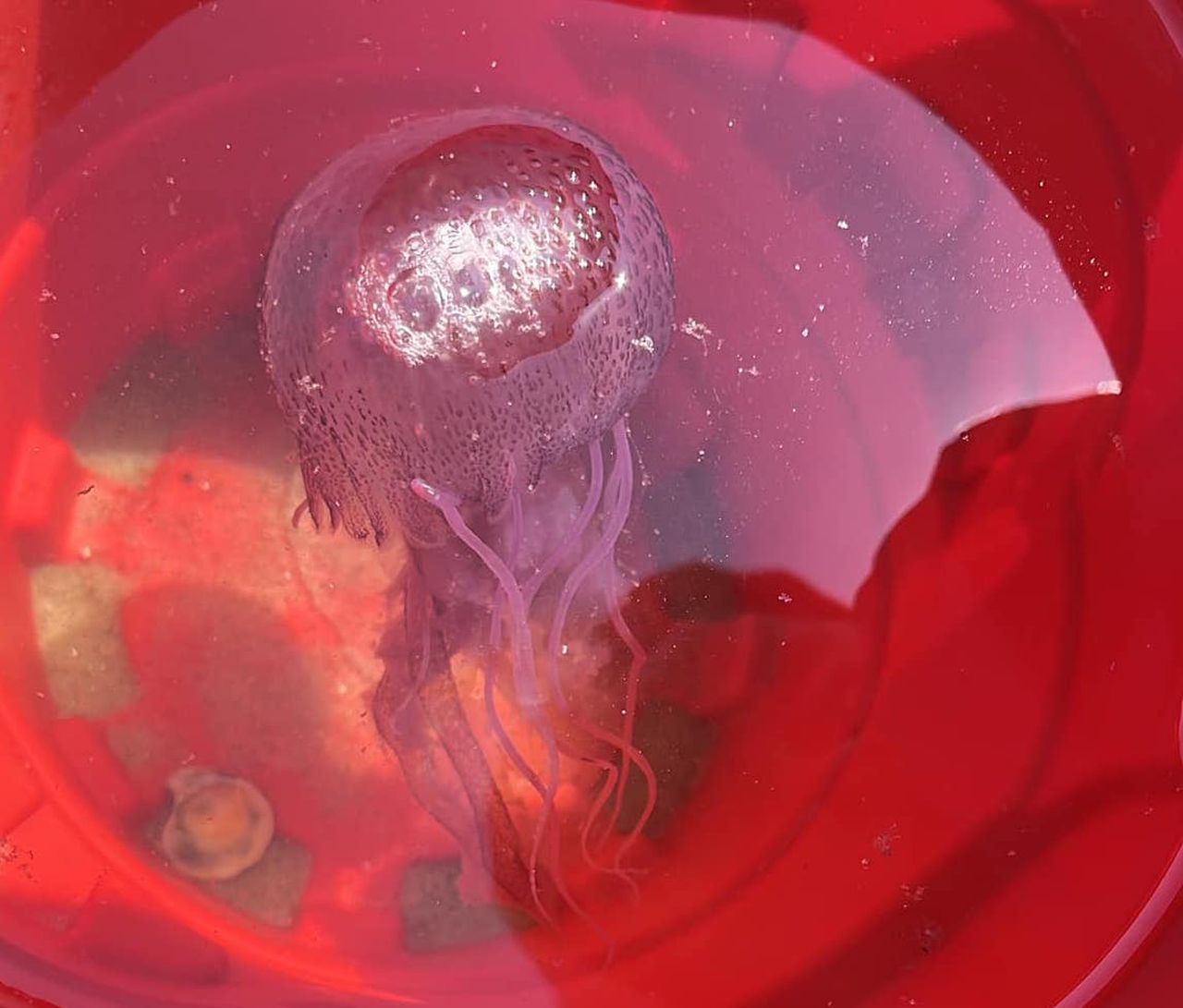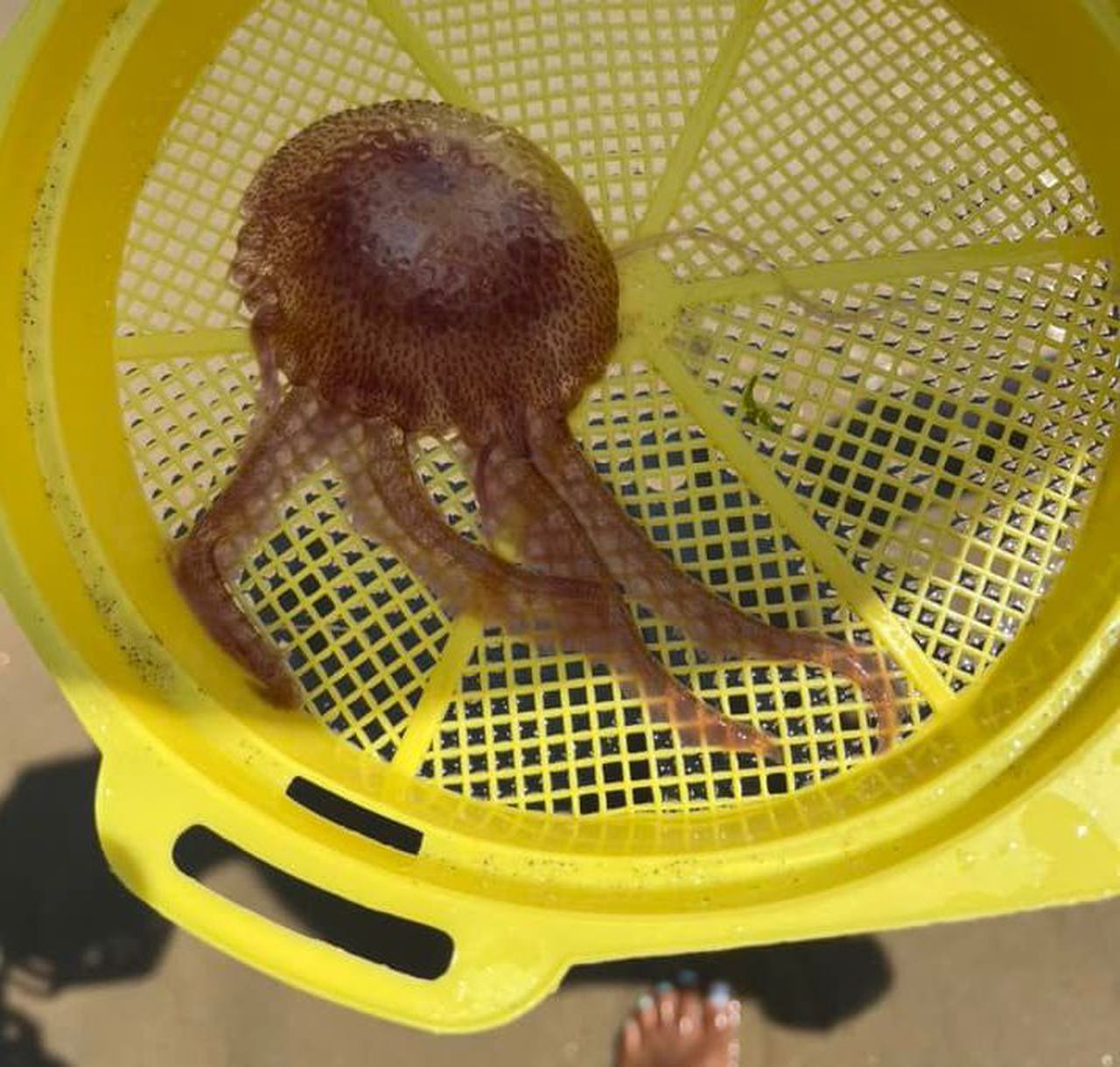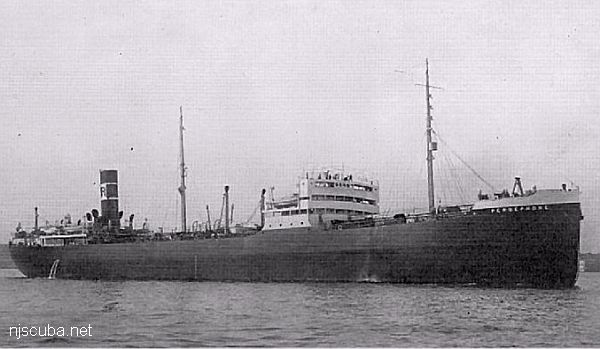September 1, 2022
Purple Jellyfish - 2022
September 1, 2022
Rare mauve stinger jellyfish found at the Jersey Shore. Its sting is 'intense,' scientists warn.
By Brianna Kudisch
NJ Advance Media for NJ.com
Aug. 31, 2022

Provided by Maggie McGuire
Maggie McGuire was at Sea Watch Beach in Manasquan with her family Monday when they spotted something unusual in the water - a small, umbrella-shaped, purplish-pink jellyfish speckled with dots. They scooped one up with their bucket and let it swim around in the water before eventually releasing it on the other side of the beach, away from swimmers.
"The water was literally filled with them," McGuire recalled. Her kids caught and released probably a dozen, she estimated, and other kids were doing the same. She did a quick search online, found a Facebook group - New Jersey Jellyspotters - and posted photos of the jellyfish. Two marine biologists reached out and informed her they were mauve stingers, a species rarely found on New Jersey beaches.
Pelagia noctiluca, or mauve stingers, are relatively small and can sting. Unlike other jellyfish, which only have stinging cells on their tentacles, mauve stingers have stinging cells all over their body, said Liza Baskin, a marine scientist at the Marine Academy of Science and Technology in Sandy Hook.
"Sometimes people pick up dead jellyfish by the bell - that should definitely not happen with this one because it can still sting you," she said. People who have been stung by this species have "described it as a nine-volt battery sort of sting," she added, "which is pretty bad."
Mauve stingers are also usually found more in the open ocean, but the jellyfish have been recently sighted and washed up all along the Jersey Shore, from Sandy Hook to Cape May. It's especially unusual to see such a large number of them, said Paul Bologna, the director of the Marine Biology and Coastal Sciences program at Montclair State University. He said he's only seen two mauve stingers over the last 15 years, but within the past two weeks, he estimates “thousands” might be in the water along the Jersey coastline.

Provided by Maggie McGuire
So why are they here? "Boy, that's like the $64,000 question," Bologna said.
Bologna said their presence could be due to a combination of factors, from the lack of rainfall and upwelling in the ocean to winds coming out of the southeast this summer. The tide also may play a role, pulling the mauve stingers in and onto the beaches once they drift close enough. Although he's unsure of the exact reason the mauve stingers are here, Bologna is abundantly clear on how painful their sting can be. He intentionally let himself get stung, in the name of science.
"I'm like, ‘How bad could it be?'" he said, explaining that he is familiar with the occasional, intentional sting of a jellyfish. The mauve stinger was different.
"Immediately, I used some choice four-letter words," Bologna said. "And it was just like intense pain." The spot on his arm turned "red and nasty," and a scab appeared the next morning. Although it didn’t cause him to bleed, it "basically just killed all the tissue in a small circle on my arm," he said.
The mauve stingers may not stick around much longer. Baskin said she went looking for them this morning, but came up empty. Either way, don't let their potential presence derail your plans, both marine scientists said.
If you get stung, white vinegar is a common remedy, they both noted. Other antidotes include a rinse of salt water or a hot compress. "It's Labor Day weekend, I wouldn’t let this jellyfish keep me out of the water," Baskin said. "I'd just bring a bottle of vinegar with me."
Our journalism needs your support. Please subscribe today to NJ.com.
Brianna Kudisch may be reached at bkudisch@njadvancemedia.com.
https://www.nj.com/news/2022/08/rare-mauve-stinger-jellyfish-found-at-the-jersey-shore-its-sting-is-intense-scientists-warn.html


